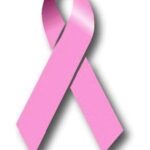 There might be a positive role for fibrin, according to researchers from the National Cancer Institute, in Bethesda, Maryland.
There might be a positive role for fibrin, according to researchers from the National Cancer Institute, in Bethesda, Maryland.
First, the details.
- The relation of dietary fiber intake to the risk of breast cancer based on hormone receptor status and histologic type was studied in 185,598 postmenopausal women.
- More on estrogen receptors is here.
- Dietary intakes were assessed with a food-frequency questionnaire.
And, the results.
- During an average of 7 years, 5461 breast cancer cases were identified.
- Higher dietary fiber intake was associated with a significantly lower risk of breast cancer when those with the highest intake were compare to the lowest intake group.
- This inverse association appeared to be significantly stronger for estrogen/progesterone negative tumors than for estrogen/progesterone positive tumors.
- Although total fiber intake seemed to have an impact on breast cancer risk, fiber intake from several food groups, including grains, vegetables, fruit, and beans, did not.
- Soluble fiber intake was inversely linked to breast cancer risk, whereas insoluble fiber intake showed no association.
The bottom line?
The authors concluded that their “findings suggest that dietary fiber can play a role in preventing breast cancer through nonestrogen pathways among postmenopausal women.â€
“Nevertheless, the totality of evidence at this point is far from consistent, and additional research is needed before definitive public health recommendations for fiber and breast cancer can be made.”
10/5/09 23:45 JR